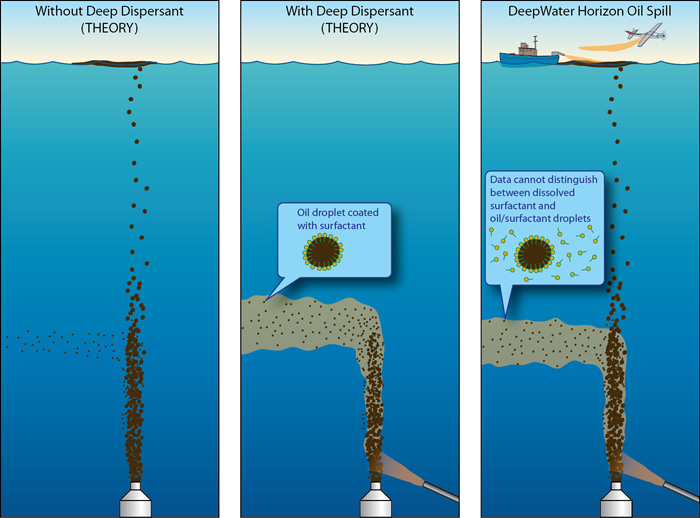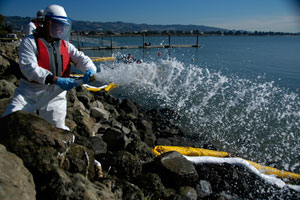A committee in the Louisiana State Senate approved a ban on dispersants in the state’s waters on Tuesday as new evidence came to light indicating that the record volume of chemicals used last year in the wake of the Deepwater Horizon spill may have done more harm than good.
The new law, proposed by Republican state Senator A.G. Crowe, bars the use of dispersants within 3 miles of the coast unless they are classified as “practically non-toxic.” The chemicals, which are used to break down oil into smaller clumps and cause it to sink below the surface, became highly controversial last year when more than 1.8 million gallons were dumped into the Gulf of Mexico in the wake of the massive Deepwater Horizon spill. Louisiana has now become the first state to take up a bill banning use of these dispersants, in response to concerns about the potential environmental and human health impacts that the chemicals may have. The bill will now go to the full Senate for debate.
We’ve written quite a bit about the controversy surrounding the use of dispersants in the Gulf, and the limited government oversight that created a situation in which BP was allowed to dump toxic substances into the water on top of the millions of barrels of oil it had spilled. The EPA maintains that using the dispersants was, overall, a preferable alternative to letting all the oil wash ashore. But the National Oil Spill Commission has said that a lack of planning for their use handicapped the government’s spill response.
Now, more than a year after that spill began, scientists are finding evidence that the chemicals are lingering in the Gulf. The latest science on the spill, from researchers at the University of West Florida, finds that the dispersants not only failed to speed up the breakdown of hydrocarbons, but also actually increased the amount of oil that dissolved into the water, as the Pensacola News Journal reports. This may have an impact on phytoplankton and bacteria at the base of the Gulf food chain, according to Wade Jeffrey of UWF, and “may cascade itself up through other larger organisms.”
A separate team of researchers from the University of South Florida said last week that they have found large amounts of dispersed oil are still lingering in the deep sea and potentially threaten the base of the food chain. They cited a “dirty blizzard” of dispersed oil and decaying plant and animal matter thousands of feet below the surface of the Gulf.









